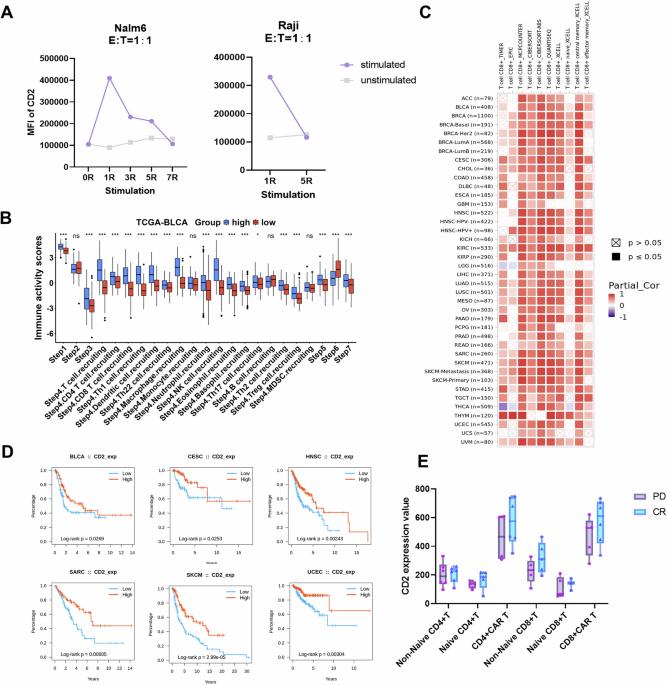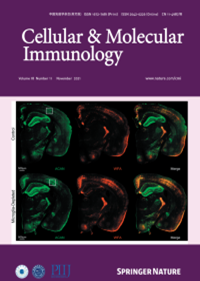CD2增强通过免疫突触重塑和t细胞衰竭缓解增强car - t细胞效能。
IF 19.8
1区 医学
Q1 IMMUNOLOGY
引用次数: 0
摘要
car - t细胞疗法在治疗血液系统恶性肿瘤方面取得了重大进展,但其疗效往往受到t细胞功能不理想的阻碍,其特点是抗肿瘤能力弱且缺乏持久性。免疫突触是t细胞功能的关键决定因素,受CD58-CD2轴的影响。T细胞上CD2表达的动态调控影响car介导的免疫突触的质量,影响car -T细胞的功能结局和分化。我们的研究表明,CD2表达水平与CAR-T细胞形成的免疫突触的质量及其抗肿瘤能力密切相关。补充外源性CD2可增强CAR-T细胞形成高质量突触的能力,减少t细胞耗竭,并增加持续的抗肿瘤疗效。此外,异位CD2表达增加了car - t细胞对低密度抗原的敏感性。因此,在CAR-T细胞中补充CD2是提高CAR-T细胞治疗效果的一种有希望的策略。本文章由计算机程序翻译,如有差异,请以英文原文为准。

CD2 augmentation enhances CAR-T-cell efficacy via immunological synapse remodeling and T-cell exhaustion mitigation
CAR-T-cell therapy has made significant strides in treating hematological malignancies, yet its efficacy is often hampered by suboptimal T-cell functionality, marked by weak antitumor capabilities and a lack of durability. The immunological synapse, a key determinant of T-cell function, is influenced by the CD58-CD2 axis. The dynamic regulation of CD2 expression on T cells impacts the quality of CAR-mediated immunological synapses, affecting CAR-T-cell functional outcomes and differentiation. Our study demonstrated that CD2 expression levels are closely linked to the quality of immunological synapses formed by CAR-T cells and their antitumor potency. Exogenous CD2 supplementation enhances the ability of CAR-T cells to form high-quality synapses, reduces T-cell exhaustion, and increases sustained antitumor efficacy. Additionally, ectopic CD2 expression increases CAR-T-cell sensitivity to low-density antigens. Thus, replenishing CD2 in CAR-T cells is a promising strategy to increase the therapeutic efficacy of CAR-T-cell therapy.
求助全文
通过发布文献求助,成功后即可免费获取论文全文。
去求助
来源期刊
CiteScore
31.20
自引率
1.20%
发文量
903
审稿时长
1 months
期刊介绍:
Cellular & Molecular Immunology, a monthly journal from the Chinese Society of Immunology and the University of Science and Technology of China, serves as a comprehensive platform covering both basic immunology research and clinical applications. The journal publishes a variety of article types, including Articles, Review Articles, Mini Reviews, and Short Communications, focusing on diverse aspects of cellular and molecular immunology.

 求助内容:
求助内容: 应助结果提醒方式:
应助结果提醒方式:


